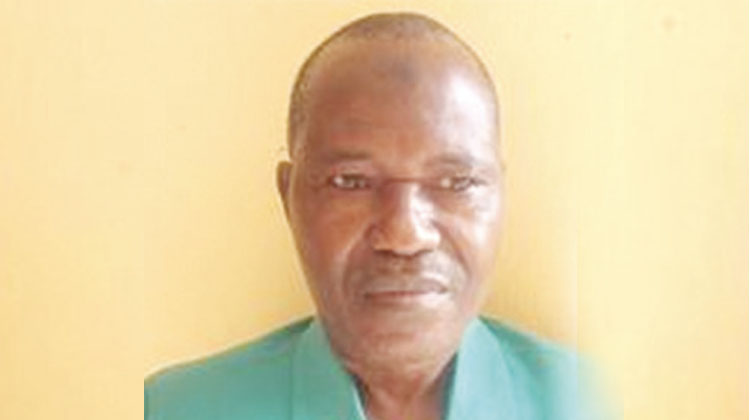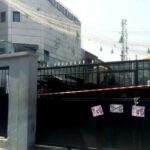
For the majority of Nigerians, it is a pleasure that 2022 is rounding off. Many would likely claim that they had never had it so bad. But it has always been so in recent years. Of course, there are those who have never had it so good. Yet there are those in-between or in hiding, possibly because they have cases to answer on their involvement in pauperising Nigerians. They are rich but have to be cautious in displaying or enjoying their wealth. Whichever position one finds himself or herself in, the hope for an improved economy and living condition in 2023 is already filling the air with the elections in February and March of the year and the eventual change of guard in May 2023. Hopefully, we all have our permanent voter cards to make wise choices.
A visit to the website of the National Bureau of Statistics shows that at the end of 2021 or beginning of 2022, Nigeria’s inflation rate was 17 per cent but accelerated for 10 straight months in 2022 to climax at 21.47 per cent in November 2022. It was regarded as the highest since 2005 and attributed to such factors as the disruptions in food supply, depreciation of the naira which increased the cost of imports for industrial inputs and consequently the rise in production cost and selling prices. Of course, rising inflation simply means rising cost of living or falling standard of living.
The output in the agricultural sector suffered a serious decline as a result of rising insecurity from the previous years, climate change and severe flooding, particularly towards the end of this year. The situation in the agricultural sector contributes to the inflationary pressure due to food shortage in addition to the rising cost of transportation arising from the government’s indecision on fuel subsidy removal or retainment. Generally, the price in this yuletide compared to a month earlier was reported to have gone up by over 60 per cent. To console the citizens, we point at the global increase in prices but are they at the same rate?
Data from the Debt Management Office show that the country’s public debt was N39.56tn at the end of December 2021, rose to N41.6tn in March 2021 and is estimated to reach N45tn at the end of the year. The Federal Ministry of Finance, Budget and Planning had budgeted N17.1tn for spending in the year with more than half relying on borrowing. The capital expenditure was projected at just 35 per cent of the total budget while debt service was 21 per cent of the budget or 34 per cent of the expected revenue. Actually, at one point, the Minister of Finance, Budget and Planning lamented that after servicing and paying debts, no fund was left to meet other obligations.
The World Bank projected recently that the country’s debt servicing could gulp about 123 per cent of 2023 revenue. This implies that we might need to borrow money to pay our debt! Many economists in the country have warned the economic managers to look at the debt-revenue ratio instead of the debt-GDP ratio in contracting loans but they have better ideas. They are more at home with the World Bank/IMF position which advocated debt to GDP ratio than local economists. If our economy is properly monitored and managed, should Nigeria be borrowing money from all sorts of places?
The year 2022 has further revealed that corruption in high and low places has become part of economic management despite the promise of the government at its inception in 2015 and 2019. It looks as if we have been borrowing money to cover the amount of money being stolen by the financial gatekeepers. This year exposed the former Accountant General of the Federation, Ahmed Idris, as not just light-fingered but totally drenched in corruption. He was alleged to have been able to enrich himself to the tune of over N109bn! What could an individual be doing with that kind of money?
The fact that it was possible to retrieve $900,000 from him confirmed that he actually stole or embezzled the money. The slap on our face, or that portrays us as an unserious nation is that the man is not behind the bar for life imprisonment. In fact, that we are negotiating a plea bargain with him is the highest level of insult to the psyche of Nigerians. How many lives have been lost and how many people have been pushed into the unemployment and poverty trap have to be empirically investigated.
The fraudulent act by Idris, among others, has made it difficult for people to discountenance the report on N89.1tn stamp duty fraud attached to the Governor of Central Bank, Mr Godwin Emefiele. One hopes it is not true at the end of investigations and court actions. Part of the 2022 exposé was the report of massive stealing of crude oil offshore and possibly onshore. It was not new that crude oil was being stolen but the magnitude from the exposure was unimaginable and the categories of people and organisations involved remain unfathomable. The exercise was quite revealing but what has become of the whole activity? This year also happened to be the year that Doyin Okupe’s role in the Peoples Democratic Party’s sharing of our patrimony would be recalled for sanction. I hope others will not go free. I just hope a poor man that stole an ordinary goat would not have gone to jail for 10 years!
I have listened to and witnessed a number of spiritual gatherings where prayers were directed at the exposition of all thieves in government. From what is happening, it seems God still answers prayers from Nigerians. The prayer needs to be extended to what God should do to them when they are exposed and caught. We cannot leave it in the hands of man, as they will likely sweep it under the carpet.
This is the year of enhanced Japa, when the youths, mainly graduates and professionals who are the future of this country, are voting with their feet in unprecedented numbers due to encouragement from the government policies that have unleashed unprecedented unemployment and insecurity on the nation. The Minister of Labour, Chris Ngige, believed the emigration of these youths will bring foreign currencies in terms of remittances to the country. The concern is not about whether we have enough of such manpower to add value to our services and products before exporting the excess. Of course, Ngige will be one of those labour ministers that will be remembered for the huge number of unresolved labour problems.
Finally, as the year was winding down, the CBN came up with two mutually inclusive policies; the redesigning of the naira, and what it refers to as the promotion of a cashless economy through the imposition of maximum withdrawable amount from banks and ATMs. Both policies generated and are generating a series of complaints. The CBN has revised the cap on withdrawal in response to such complaints. The new currencies are already out and reactions are both positive and negative with some depicting a high level of ignorance and financial illiteracy among the non-bank public.
Starting this article with the case on inflation is very understandable given this festive period that is devoid of rice as the main Christmas menu in many homes and of course chicken that would have gone with it. This time last year a bag of rice was sold for around N20,000 which cut off some families from providing normal sumptuous meals for friends and neighbours like us. The same bag of rice is now over N30,000 and more families have been deprived of Christmas celebrations. It is not just rice and chicken anyway. Within the year, more Nigerians have entered the poverty trap. Even patronage at the second-hand clothing markets has reduced as people have to make choices between food and clothes when they cannot afford the two with their meagre incomes.
Many people cannot travel home for Christmas in the usual manner due to insecurity and poverty. It is all the outcome of inappropriate economic policies, economic mismanagement, and unbridled corruption. Even, some government officials are aware of the hardship being suffered by Nigerians but would not accept the same as part of their responsibility. Some of them will soon join us on the sidelines when their government winds down. Let us hope, as usual, for a better 2023.





